Nonprofit Technology & Fundraising Blog
Subscribe to our mailing list
June 2, 2021 |

Written by Michele Hickey
This article originally appeared on the Constant Contact blog. It has been republished and edited with permission.
Most people who are involved in an enterprise of some sort – for-profit business, nonprofit, community-based, etc. – recognize the need for an online presence. With 90% of adults in the U.S. using the internet, there is no question that the world wide web has infiltrated our daily lives.
It has become something of a personal mission to help local community organizations develop the knowledge they need to stake a claim on digital real estate of their own. With so many people relying on the internet for information, it is critical that your nonprofit is accessible digitally, as well as physically.
I am so glad that Constant Contact created the ultimate free guide to marketing for nonprofit organizations. The Download: Making Sense of Online Marketing for Nonprofit Organizations details the must-knows of the entire nonprofit online marketing mix, including:

I highly recommend downloading the free guide for an overview of how your website, social media, and other marketing efforts come together to advance your mission. But for now, let’s dive into the importance of a great nonprofit website.
Think about it: the first thing most of us do when we want information, about everything from local restaurants to major universities, is to look to the Internet. And if we can’t find the information online, aren’t we inclined to ask, “Does it even exist?”
This means that all the work you are doing to promote your nonprofit organization will be lost every time someone searches online to learn more about your work but is unable to find you there.
Oh, and your site needs to be mobile-friendly. Today, a little more than half of people who access the internet do so via their phones; that number is expected to increase to three quarters by 2025! This means that your site should look and function as beautifully from a smartphone or tablet as it does on a desktop.
If you’re setting up your first website in 2020, it will be easy to make sure it is mobile-friendly from the get-go. If your site hasn’t been updated in more than three or four years, then there is a good chance that you will need to upgrade.
Not sure if your site is mobile-responsive? Test it yourself. Visit your site from a couple of different smartphones and tablets. How does it look? How easy is it to find your menus and links? If you are struggling to find basic information, then your visitors will, too. Most website visitors will leave within 15 seconds if they can’t find what they are looking for. 15 seconds.
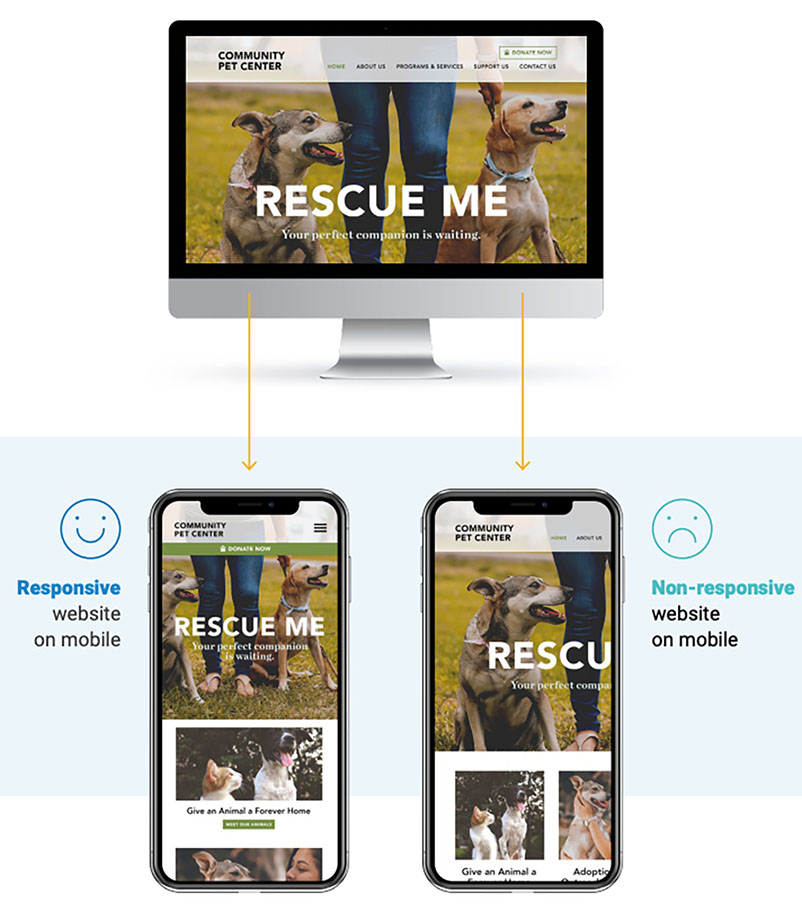
The other day, I used my phone to check out the website of a local business that clearly hadn’t paid attention to its site in a while. The site was unattractive, and it was hard to find the links that I needed. Furthermore, several of the links were broken.
All in all, it did not reflect well on the business. In fact, I wondered whether or not the business was still operating (it was). But how many other visitors will take the time to find out?
It has never been easier to set up and design a great-looking website. Gone are the days when building a website required high-end technology skills, or a big budget.
Unless you need a large, complex website, Constant Contact’s all-in-one website builder will provide all the bells and whistles you need to create a unique digital “storefront” for your organization. And best of all — it’s free to get started.
First, you’ll need to register a domain name or migrate your existing one to the new website builder. From there, you’ll choose a basic design template and then tailor it so that it reflects your brand, adding content – a fancy word for text and images – that reflect your brand and tell your story.
Constant Contact’s new website builder makes it even easier to design your mobile-friendly site — answer a few questions and the power of A.I. will help you tailor a digital template that will look great on any device. Built-in analytics will help you keep tabs on traffic to your site, and security features are included to keep your visitors’ information safe. DonorPerfect clients can integrate their DonorPerfect Online Forms with the click of a button - literally. It takes less than 30 seconds to set up! Collect online donations, memberships, and any other data your organization may need, with the information flowing directly into DonorPerfect.
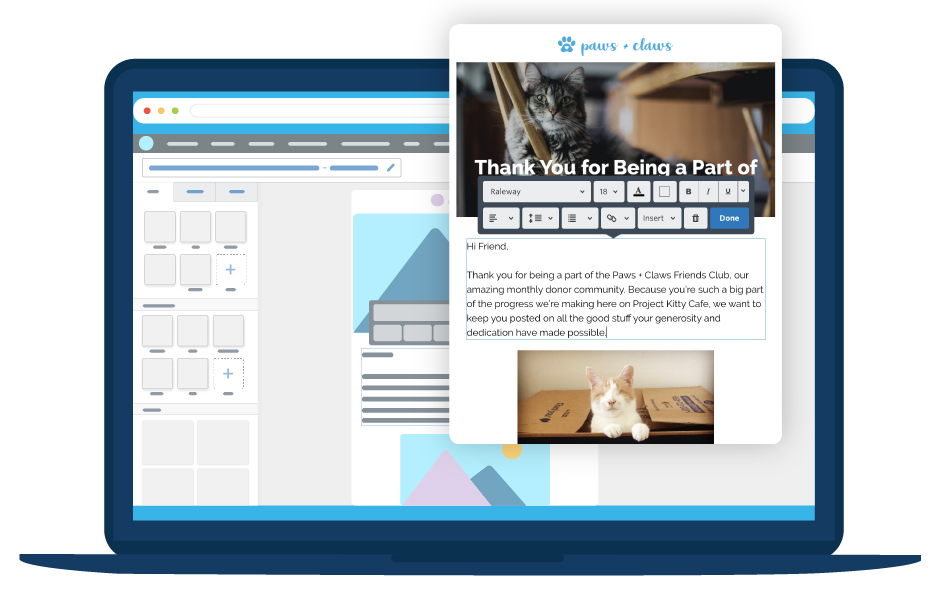
Here’s my main guideline for you in developing content for your website: Keep. It. Simple.
You don’t need – and believe me, you don’t want – a dense, complex website. Five pages are all you really need. Each page should stay focused on answering just a few key questions.
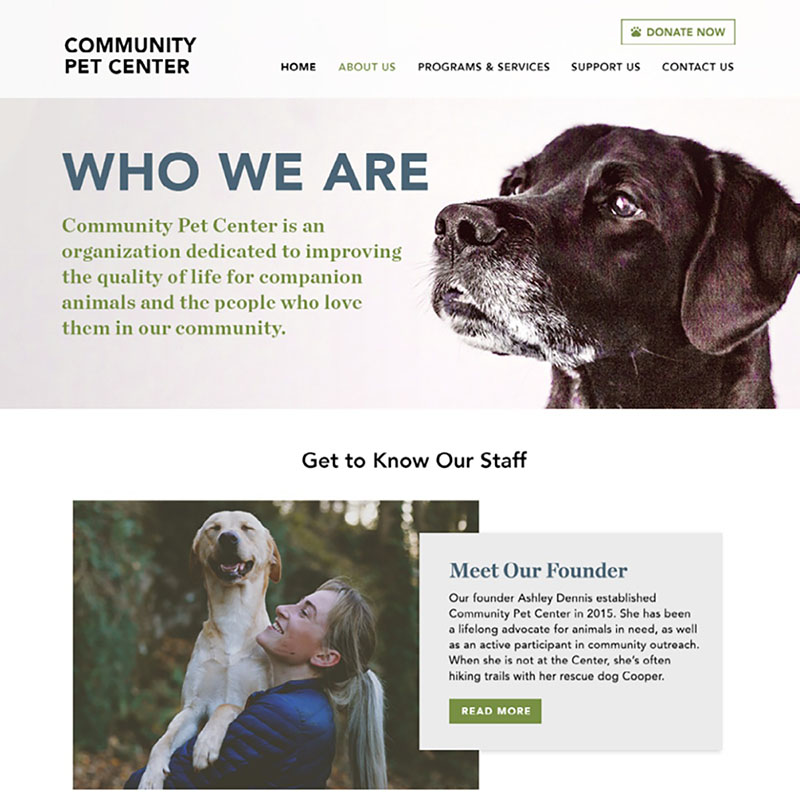
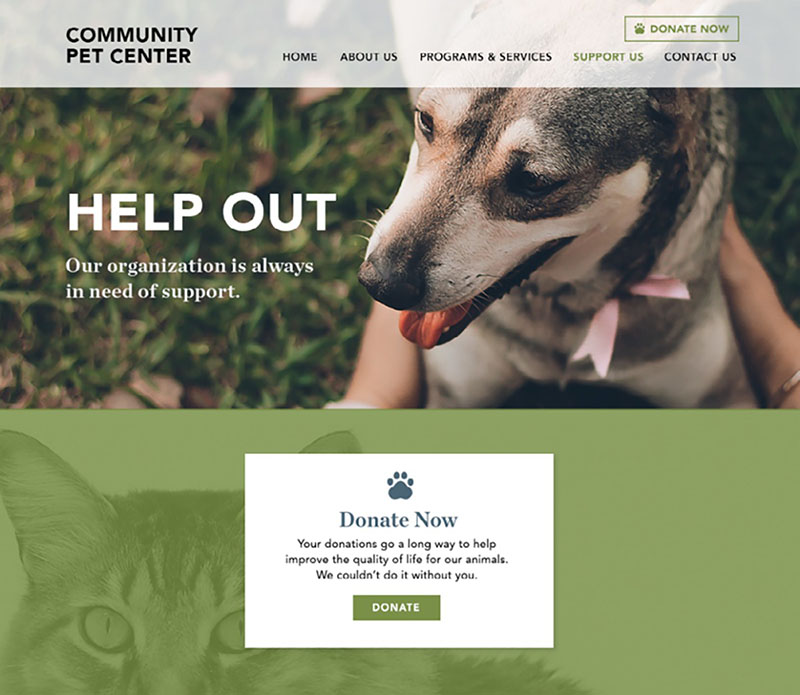
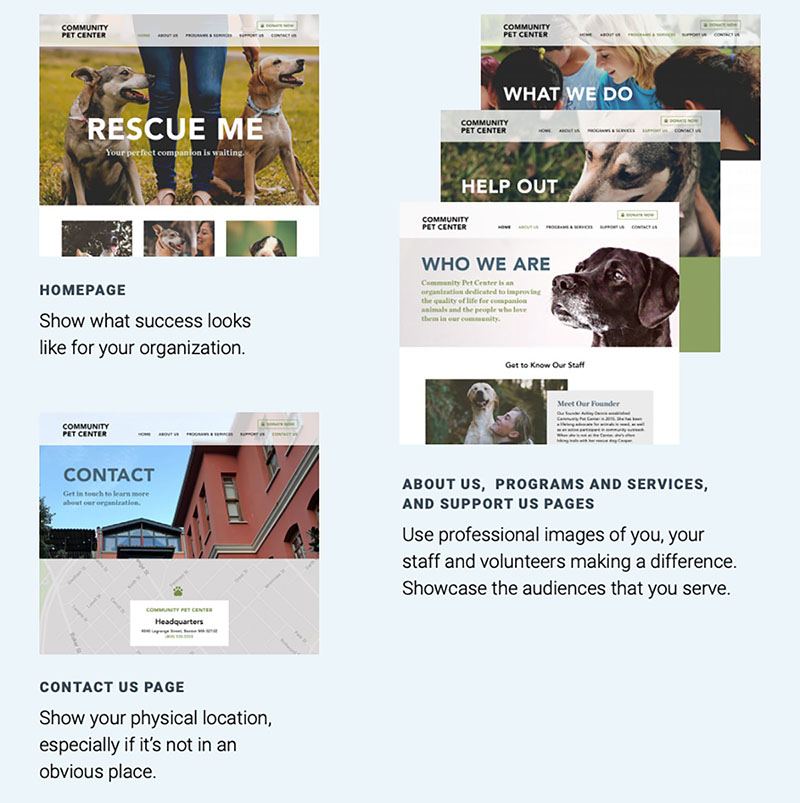
Pictures speak volumes about your organization. Photos showing your mission in action will engage visitors on an emotional level.
Make sure that the photos are of good quality, and that you have the appropriate permission from any people who are pictured, especially if they are children.
While it’s important to stay focused on answering the page-specific questions listed above, there are a few things that every page should have in common. As a nonprofit marketer, your online marketing efforts (and your website) will usually focus on two key goals:
It is easy and inexpensive to include a “donate now” button on every page of your website. Transaction services such as DonorPerfect Payment Services require no set-up charges; rather, they will charge a nominal fee per transaction. And before you balk at the fee, consider this: if you receive ten new donations online that you wouldn’t have received otherwise, hasn’t the transaction fee paid for itself? Donations from DonorPerfect Online Forms are processed in real-time, acknowledged and posted in DonorPerfect automatically, with funds deposited directly to your bank account.
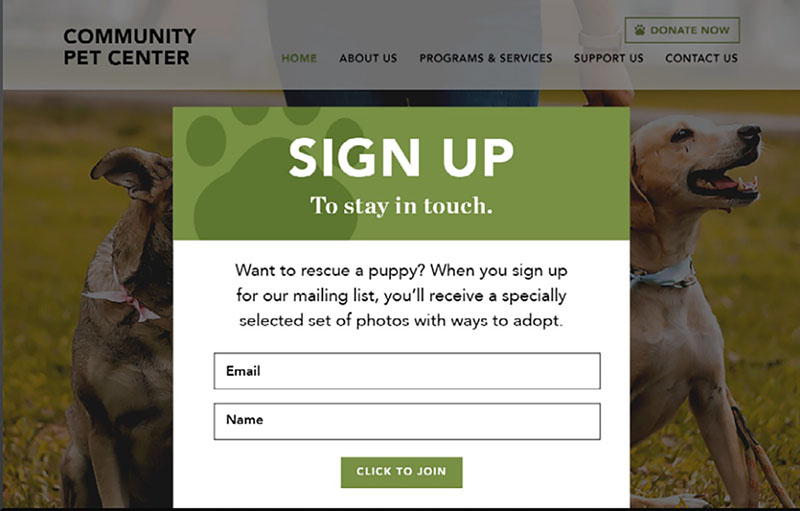
Don’t forget to collect email addresses! Include a “Join Our List” button on every page of your site. This will bring followers into your loop so that you can begin a real and lasting dialogue with them.
Creating a website is not a “one-and-done” proposition any more than setting up a storefront is. Take a little time to create a website plan that includes goals, strategies, and measurable outcomes.
Think about who your audience is, and who you are trying to reach with your digital materials, and tailor your design and content to their needs.
Choose digital marketing tools that are manageable. Prepare for ongoing maintenance of your site so that it is always fresh, accurate, and up to date. Integrate the website into a larger vision for marketing and promoting your organization.
And finally, have fun with it!
Start your transformation today with digital tools that yield the results you want.
Follow us on social!